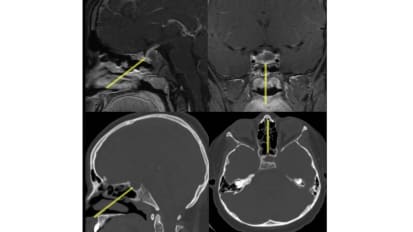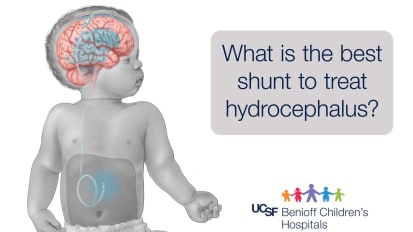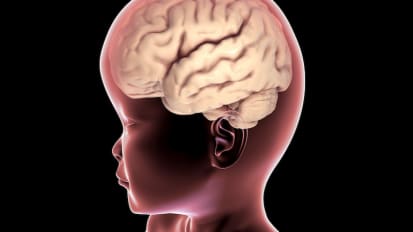Search Videos and More
 Video
Video
Pediatric Neuroimmunology Update: Pick Up on Common Disorders & Optimize Outcomes
While seen as an adult disease, multiple sclerosis presents before age 18 in up to 10% of patients. Fortunately, prompt identification combined with newer therapies can lessen damage and protect future well-being. Video
Video
Costs and Complications of Pediatric Stroke: Why Early Identification and Intervention Are Priceless
In the U.S., about 3,000 children have a stroke each year. Yet, as pediatric neurologist Christine Fox, MD, MAS, notes, most parents don’t know that kids can have strokes, and more crucially, many pediatric providers are slow to consider stroke as a possible cause of certain symptoms. Video
Video
Neurofibromatosis and Schwannomatosis: Identifying Patients and Optimizing Care at Every Age
Neuro-oncologist Brian S. Na, MD, PhD, is dedicated to improving quality of life for patients with NF1 and NF2-related schwannomatosis, complex genetic conditions that vary widely in severity and symptoms. Video
Video
When Meds Fail: Latest and Best Options for Kids With Epilepsy
Despite numerous new drugs developed over the last 30 years, medications alone aren’t enough to control seizures in one-third of patients with epilepsy. Video
Video
Differentiating Pediatric Movement Disorders: When to Reassure, When to Refer
Pediatric neurologist Mary Jeno, MD, starts by laying out useful parameters for navigating the nuances of odd motions – from eye fluttering to shuddering to hip thrusting – that worried parents report seeing in their babies, young children and teenagers. Video
Video
“My Head Hurts”: Secrets to Handling Headaches in Primary Care
This is a practical guide to arriving at the correct diagnosis – primary condition? tension or migraine? – and savvy use of the numerous medications and other tools available to address frequent or severe headaches in the young. Video
Video
Minimally Invasive Technique Eradicates Recurring Pituitary Abscess
In this intraoperative video, watch UCSF neurosurgeons Ezequiel Goldschmidt, MD, PhD, and Peter Sun, MD with Patricia Loftus, MD, from the Otolaryngology Department surgically evacuate a sellar abscess of the pituitary gland in a pediatric patient. Video
Video
Sorting Out Seizures: An Expert’s Update for Pediatricians
In this fast-paced guide, pediatric neurologist Jennifer Yuen, DO, makes sense of the many seizure types and epilepsy syndromes, so that primary care providers can efficiently reach a likely diagnosis and determine which patients need a workup... Video
Video
Hydrocephalus: The Workhorse Shunt
UCSF's chief of pediatric neurosurgery, Nalin Gupta, MD, PhD, gives a quick lesson in the structure and function of the ventriculoperitoneal shunt, illuminating its many benefits. Video
Video
Big, Small, Flat, Triangular: Understanding Abnormal Head Shapes in Infants
Babies’ heads can look odd for a variety of reasons, some benign and some requiring prompt, expert care. Video
Video
Plagiocephaly in Infants: Keys to Assessing Head Shape Concerns in Primary Care
Emphasizing the value of early referral, specialists with the UCSF Craniofacial Center present essential information for pediatricians noting or suspecting plagiocephaly – including how to know what's actually abnormal when examining a baby's skull. Video
Video
Pediatric Hydrocephalus: An Update on Signs, Solutions and Strategies
With a range of causes, associated disorders and presentations, childhood hydrocephalus can be challenging to diagnose.

